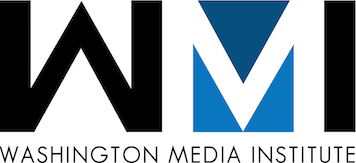By Director Amos Gelb
Let’s face it, interning is all about the job – the one you want and hope to get. For most students, they are looking for the elevator up to the top floor and usually that floor is something they have persuaded themselves they have always wanted.
Case in point, this past semester a student came to the Washington Media Institute with an impressive resume, filled with an array of broadcasting and reporting experience. Covering politics was her goal, specifically for a network. We went a slightly different route with video, but one that was still politically based and she lived up to her potential. She completed her semester and her internship loved her.
She has since dropped out of journalism.
She discovered that when she got to really get her hands dirty, what she loved was not broadcast or journalism but the politics. She has transitioned into political communications.
I offer this not to scare students off, but rather to suggest a pause before jumping. So many times students are driven by the few legacy media or pr organizations they have heard of.
Ten years ago that was all there was. But two realities have built over the last five years. The first is that most students don’t really want to do the traditional, legacy media (think tv stations or traditional newspapers.) Second, despite legacy media and pr contracting, there are actually more opportunities today than ever before, both to intern and professionally, but they are not where everyone generally looks.
Newsletters, podcasts, issue pr, start-up companies – not only are these sectors growing rapidly, but most of the traditional (read old) practitioners have neither the skills nor the aptitude for the new industries. Even more importantly, these opportunities more often actually match the real interests of students.
Local tv, legacy papers, even established brands like Buzzfeed are still there and hiring, even as they contract. But it never ceases to amaze me how quickly students confess that is not where their interests really lie.
A touch of advice: students should listen to themselves, and not automatically follow the path cut by previous generations. The grass is actually greener on the other side.
The Washington Media Institute helps students build the professional resume they need to get the job after graduation. Our program complements what students are learning at their universities through project-based courses, full-time internships, and networking site visits. Click here to learn more about our program.
